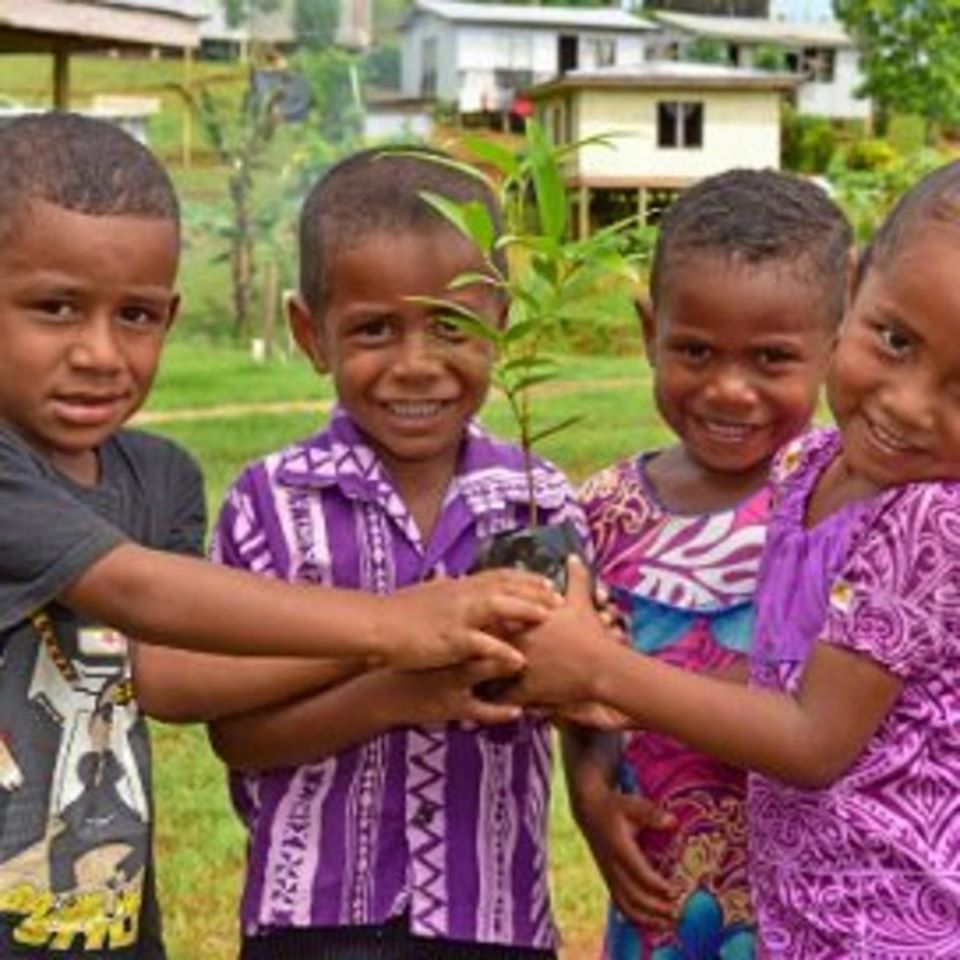
Tree planting consultations to shift to urban areas and informal settlements
Consultations on
Fiji’s 30 Million Trees in 15 Years (30MT15Y) tree-planting initiative will take
a slight shift towards the urban areas and informal settlements around the
country.
This is after the Minister for Forestry Honourable Osea Naiqamu completed visiting over 200 rural and remote villages across the 14 provinces in the past 18 months.
“Tree-planting is one of the tangible nature-based solutions to addressing climate change, to protecting nature, and in the post-COVID era, it is also part of our green recovery measures,” Minister Naiqamu said.
He said the rural and remote communities have openly embraced the concept of tree-planting.
“They have a deep appreciation for plants and trees because their lives are dependent mostly on what nature provides. It is also becoming an economic empowerment especially for those who have chosen to establish nurseries,” he said.
“It is now time to spread the tree-planting gospel in the urban areas and informal settlements. Even though they may not have easy access to large tracks of land, their contribution to Fiji’s tree planting initiative using whatever available land they have – even their backyards - could still make a huge difference,” Minister Naiqamu said.
The Ministry of Forestry will begin discussions with the Ministries of Local Government and Housing and Community Development to see how the tree-planting initiative could be rolled out in the urban areas and informal settlements.
“Tree-planting should not be limited to rural areas. In fact, I would like to encourage the communities, especially the youth and women’s groups in urban areas and informal settlements to be part of the national initiative.”
He said Fiji could start promoting small urban forests to boost biodiversity and fight climate change.
“Apart from contributing to the beauty of towns and cities, those who have land can even establish their own nurseries as a form of economic empowerment,” he said.
He said that Government, through the Ministry of Forestry, could help teach the communities the techniques of raising seedlings and to help build their nurseries.
The important thing is for as many people as possible to have a deeper appreciation of the value of trees and forests and to know how taking care of nature could assist with addressing climate change.
The Minister is visiting Koro Island in Lomaiviti this week where, like the other villages, he will promote the importance of planting trees as part of Fiji’s efforts to address climate change, enhance biodiversity and assist with socio-economic development.
He began his consultations in the provinces immediately after the President His Excellency Major-General (Ret’d) Jioji Konusi Konrote launched the tree-planting initiative at the State House in January 2019.
“Visiting these landowners and encouraging them to plant trees has been worthwhile as we have managed to plant about two million trees covering over 2000 hectares in the past 18 months.
“My visits to villages have really been an eye opener and I wish to acknowledge and thank all the landowners who have generously taken this tree planting on board and even given land to plant trees,” Minister Naiqamu said.
“The communities understand that climate change is not some far-off problem because they are experiencing the effects right at their doorsteps. For instance, villagers of Nukudamu in the district of Udu in Vanua Levu have had to relocate inland due to sea level rise and salt water intrusion and frequent tidal waves as well as the numerous tropical cyclones.”
Minister Naiqamu said Fiji’s very own teenage climate change warrior Timoci Naulusala who hails from Naivicula Village in Tailevu described the impact of climate change in Fiji at the COP 23 in Germany in 2017 as like a ‘thief in the night.’
He reiterated the words of 14-year old Timoci who said: “the sea is swallowing villages, eating away at shorelines, withering crops. Relocation of people, cries over loved ones dying of hunger and thirst. It is catastrophic, it is sad, but it is real.’
Minister Naiqamu said there are many more examples of villages he visited that are being affected by climate change.
“This is why it is important to promote tree-planting to every citizen of Fiji. We plant trees today for the future of our generations to come. This is why we also need to encourage people in the urban areas and informal settlements," he said.
Minister Naiqamu is calling on Fijians to plant trees and to post their information on the Ministry of Forestry’s website www.forestry.gov.fj The information required include photos of the trees planted together with the name of the person, contact, and the location. The Ministry will physically validate the information before adding the number of trees planted onto Fiji’s tree-planting dashboard.